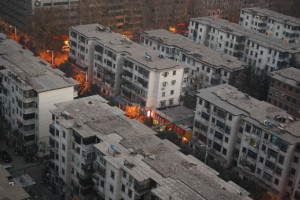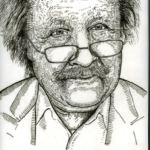Laura Harding & Philip Thalis – Making The City: Urban Housing
No comments yetarchitectureau.com. August 2014. The pervasive commodification of urban housing will leave Australia’s cities with a legacy of mean-spirited, poorly-designed buildings. As Philip Thalis and Laura Harding argue, architects have both the capacity and the responsibility to champion better solutions.
From house to housing
If we want to raise the quality of living … then the most effective way of all is to improve the quality of the house … The physical state of the house reflects the economic state of the nation, directly and sensitively … However … its ability to uplift or depress: its design – has practically no vested interests pushing from behind …”
Robin Boyd emphasized the “house,” whereas today we might talk about “urban housing” and its specific architectural form, the apartment building. The need to share urban, cultural and transport resources is reinforcing compact collective living. Apartment buildings are becoming the urban signifier of the societal change that is reshaping the ways we live.
Along with the shift from suburban to urban densities, Australia has traded the innocent domesticity implicit in Boyd’s “living” for the more glib construct of “lifestyle.” Long understood to be the provision of necessary accommodation, today housing is seen through the narrow lens of “development” self-interest. As a fast track to profit via unearned income and asset inflation, housing is frequently conceived first as a market, with societal need a distant second.
Read more: http://architectureau.com/urban-housing-making-the-city/
You May Also Like
Comments
Leave a Reply







